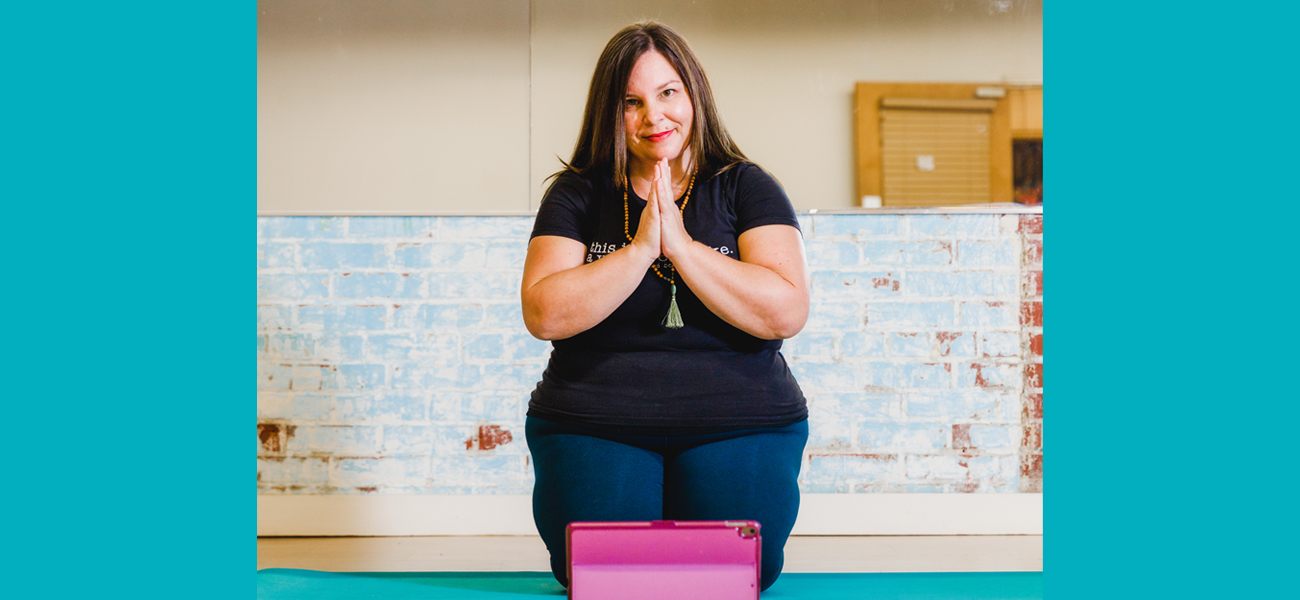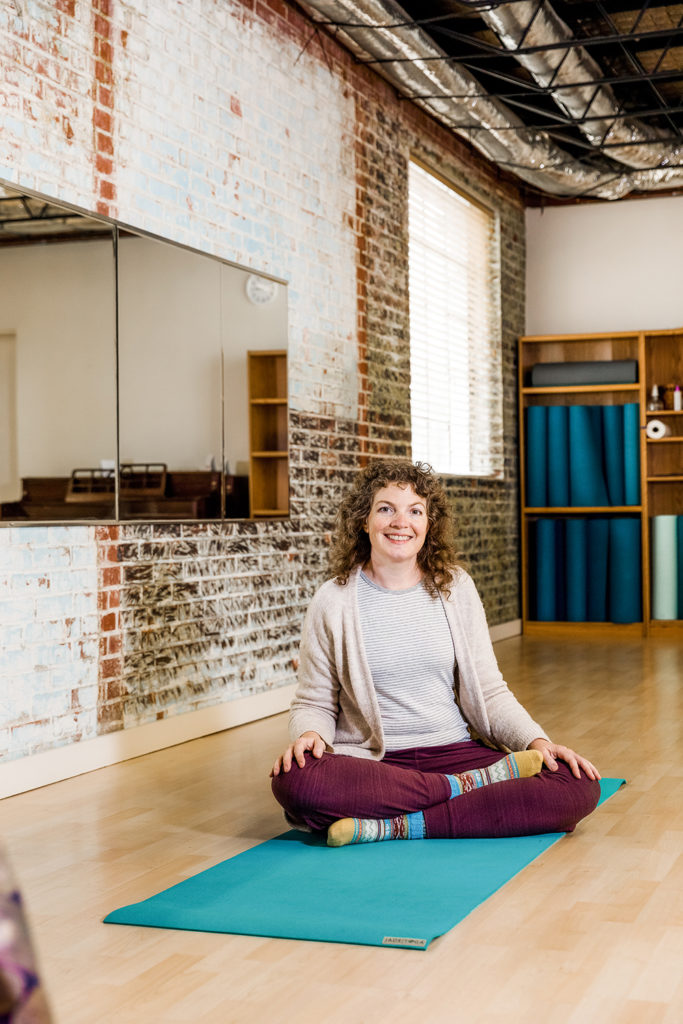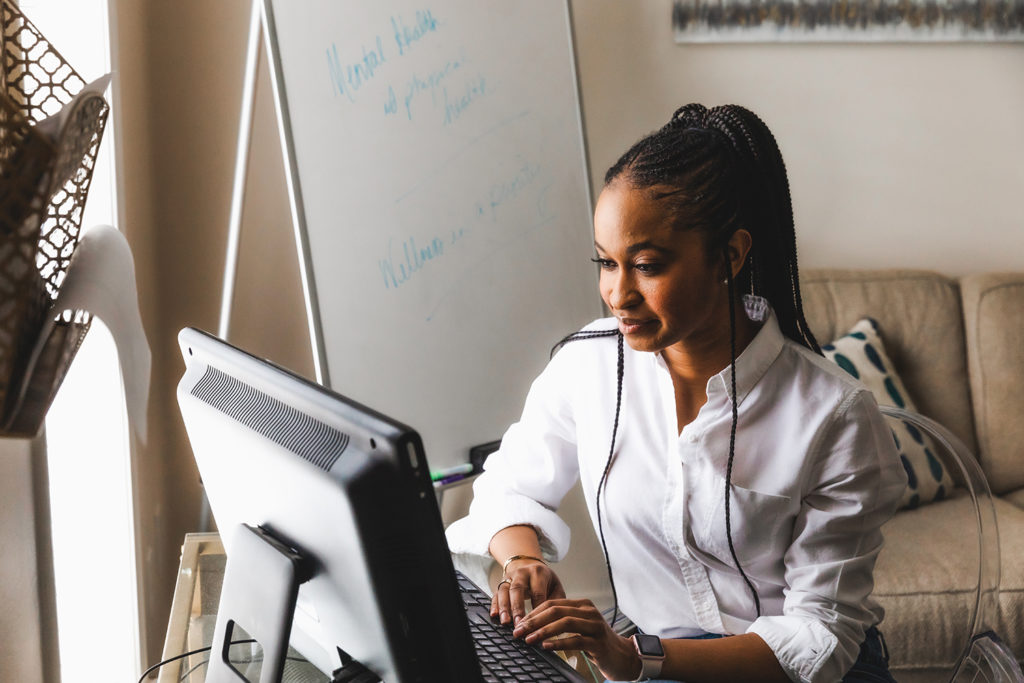
How Baton Rouge wellness pros are helping residents cope with mental health during the pandemic
Over the last year, millions of people’s lives changed. Some lost their jobs or security; others lost family members. Many fought for their lives battling a deadly virus, or stayed at home taking care of their immunocompromised loved ones. No matter the scenario, it affected everything—including our mental health.
In response, local counseling facilities and wellness studios almost immediately started offering classes, one-on-one sessions and other services virtually to bridge the gap between residents and mental health practices.
Before the pandemic, Small Talk Counseling & Consulting owner LaKeitha Poole avoided virtual counseling sessions as much as she could. She enjoyed having in-person counseling with individuals, couples and groups to make a more intimate connection. Once virtual sessions became the norm, she had to adjust and find new ways to utilize digital platforms.
For her clients, the technological barrier was one more thing to add to the new anxieties and stress brought on by the pandemic.
“A lot of people don’t have the emotional vocabulary to describe what they’re feeling,” Poole says. “There’s an ongoing feeling centered around grief, and it has made it difficult for people to recognize why they haven’t felt like themselves.”
In addition to online therapy sessions, Small Talk Counseling & Consulting started making Instagram live videos on mental health topics. It reposted podcast episodes about subjects like facing fears, self-care, manifestation and attachment.
This year, Poole plans to offer a virtual wellness retreat where participants can experience guided meditation and yoga, and career and mental health advice from professionals from their homes.
Baton Rouge nonprofit The Red Shoes also switched gears to virtual classes, conversations and book club meetings. Prior to the pandemic, the established wellness center had a full calendar of events at its Government Street space. Now, the organization offers those events virtually, including online yoga classes, outdoor events, a virtual book club and dream circle discussions.
The Red Shoes’ Executive Director Wendy Herschman says it was critical for the organization to give its participants a sense of normalcy in all the chaos.
“When you are anxious and also isolated, it’s more likely to lead to depression,” Herschman says. “To create groups and scheduled events like we were before is important.”

The Red Shoes offers virtual yoga classes Monday-Friday at 8 a.m., group outdoor walks and yoga in the park.
After George Floyd’s death last summer, it started leading eight-week book studies about race.
Around the same time, another nonprofit, STAR (which stands for Sexual Trauma Awareness and Response), encouraged virtual and social media conversations around racism and racial trauma. The organization expanded its focus from sexual trauma survivors and supportive services for women and the LGBTQ community to educating the community on how historical injustices continue to impact people of color’s mental health and perpetuate trauma.
The pandemic led to a devastating year for domestic violence victims—19 people died in East Baton Rouge Parish in 2020 due to domestic violence, according to The Advocate. This was the highest number of such deaths in at least a decade and more than quadruple the previous year.
STAR used Zoom to hold virtual trainings on topics like responding to disclosures of sexual trauma, coping with compassion fatigue and understanding human trafficking. It also offered online support groups for adult survivors of sexual trauma and caregivers of survivors.
Despite the physical restrictions, the work didn’t stop for STAR. In 2020, the nonprofit responded to 1,461 hotline calls, conducted 2,637 individual counseling sessions and provided 473 legal services.
While wellness businesses had to make quick adjustments and experiment with new ways to reach their clients and communities during a pandemic, the impact seems to have made all the technology training and virtual events worth it.
“A donor once told me that one of our online courses ‘[is] like going to a really great and fun church service every week.’ We need the familiar when so many things are moving around us,” Herschman at The Red Shoes says.
This article was originally published in the March 2021 issue of 225 magazine.



